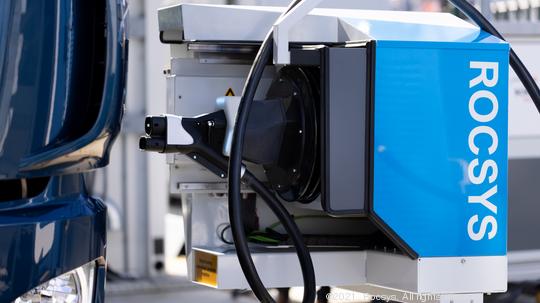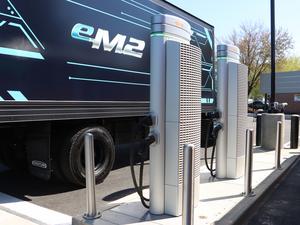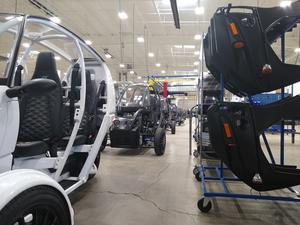
An electric vehicle charging startup that established a U.S. base in Portland last summer has landed a significant project in California.
Rocsys, which was founded in the Netherlands three years ago, makes a robotic system for automated charging that’s targeted at fleet uses — as at the Port of Oakland, where major marine terminal operator SSA Marine will use it to juice electric yard tractors that move containers.
Automated charging improves “reliability, throughput and predictability” for large fleet operators, while reducing wear and tear on cables, CEO Crijn Bouman said.
The Oakland deployment is partly funded by a grant from California’s air regulator, which has mandated reduced emissions in and around ports and is using funds from the state’s cap-and-trade program to back demonstration projects.
Golden State air-quality agencies have also supported Portland-based Daimler Trucks North America in testing electric Freightliner trucks that are expected to go into commercial production before the end of the year.
The truck maker is part of a transportation electrification ecosystem — symbolized by the “Electric Island” truck charging site, a U.S. first built by Daimler and Portland General Electric — that made Portland attractive to Rocsys.
The company has three people in a Southeast Portland office now but that number will grow, according to Erin Galiger, senior business development manager, North America.
“It’s not just the sales office,” she said. “We’re also building the team for applications and service. We’ll be growing to about 10 this year, and we’re hoping that includes research and development so that we can localize the product to the North American base.”
In total, Rocsys has about 30 employees, Bouman said. It has raised about $9 million in venture capital.
The charging system relies on soft robotics, computer vision and artificial intelligence to give it the ability to plug into vehicles under varying conditions.
“The majority of the sales effort so far is working with vehicle OEMs to test it,” Bouman said. These original equipment manufacturers see in Rocsys “something unique to offer the fleet owners.”
The Port of Oakland project will be the first instance of the technology being used in a business-critical process.
“This project is the first real, visible commercial deployment,” Bouman said. “But in the background we are working with 10-plus similar customers.”






